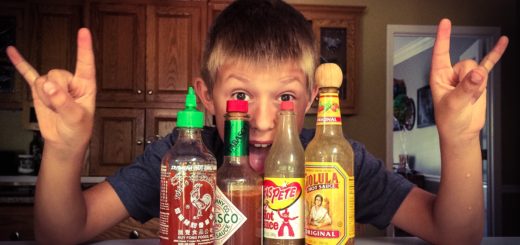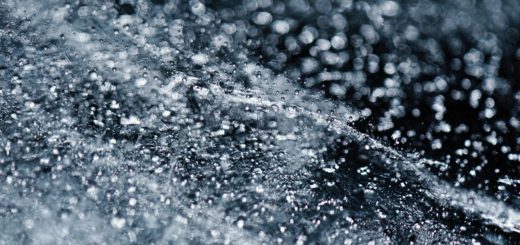Threadbare troubadour
Getting old is easy. It happens without your permission. It happens on its own. It’s literally effortless. The hard part is finding any good in it happening.
Something happened last night, and it made me understand that it sometimes takes getting old and threadbare to see the one thread that’s holding everything together.
—
When I was ten years old, my parents’ Saturday nights happened in a loose circle of tight friends. There were guitar cases in corners, strained harmonies in the middle, and songs I’d know for the rest of my life.
It was not a sewing circle. There were a couple of young vets who didn’t want to talk about the war and a hippie who never went. My dad was the man stuck somewhere in between, needing to be John Prine’s Mr. Peabody and never wanting to see his paradise hauled away. I was the youngest of the older kids, a spindle of a boy without a guitar to hold.
J.B. was the hippie and knew more songs than everybody in the room combined. His hair was long. His glasses sat crooked on his nose, but he was straight on every John Prine song. He took particular pleasure in singing “Sam Stone” because he knew it made the mamas in the crowd cringe. When I was ten, I didn’t know why a hole in Daddy’s arm was so bad, but everyone else did.
I spent those early years wanting to strum the guitars and sing the songs my mom didn’t like. The other kids were already starting to learn, and I felt more on the outside than I wanted to. When I was 11, I asked my dad to teach me. He grabbed a pencil and paper. He sketched the chords for G, C, and D. He handed me his old Sears catalogue Kay guitar, and I spent the next couple of years trying to play like my dad and his friends. I spent a lot of that time listening to John Prine. It would take me another 30 years to understand I was listening to America’s best poetry.
I learned “Please Don’t Bury Me” first, a song about a man who would rather have his parts passed out than the sum of himself buried in the ground. I learned it in part because of Venus de Milo and her missing arms, and in part because I loved the idea of singing “kiss my ass goodbye” with lyrical impunity. I played it in E, and I still play it that way today.
The song aside, I didn’t have to bury anybody for a long time.
—
My dad died when I was 38. By that time, I’d broken the neck on his old Kay, but I still played the guitar he and mom bought me when I was 17. I’d dragged it with me to college and through a few jobs. There wasn’t anybody I cared about who hadn’t endured a night with me and that guitar on a porch somewhere.
On the afternoon of the funeral, I ended up in my dad’s basement with all those people from my childhood. Their kids were the players now. They’d formed bands and gigged all over town. Sean produced a case of beer. Scotty produced a few guitars. I grabbed Dad’s acoustic out of a closet and tuned it up. Before I knew it, that day turned into an Irish wake that lasted into the night. Every song turned into another one. I remember wishing it would never end, because as long as we kept singing, Dad was listening.
At some point during it all, I looked up, and I realized everyone in the room probably had somewhere else to be. They didn’t have to be sitting in a basement. They were sitting there for me. Every song, every forgotten line, every cracked harmony…they were all aimed at making me forget just how sad I was that my dad was gone. At some point several beers into the night, I looked to my right and realized J.B. was sitting there. So, we sang John Prine, and it was the prettiest it had ever been.
I never got to see Prine with my dad, but there was a time not too long after my old man died that Prine played my town. I sat in the balcony at the Peace Center while he played, and when he started “Paradise,” I cried. I didn’t try to stop myself. I just cried. It wasn’t that my Dad dreamed of his own paradise, one he envisioned where his entire extended family and close friends lived and laughed. It was because I was so damned happy to have that memory of sitting around listening to my parents and their friends sing when I was a kid.
And honestly, it was because of what’s happened in those years since Dad taught me how to play in the key of G.
—
I’ve got this cousin named Ronnie. He was the guy who stepped up when my ability to play guitar got past three-chord blues. The first time we played together, he apologized for not offering me beer (“Your mom would kill me,” he said) and taught me the opening riff to “Gimme Three Steps.”
In the years that came after me playing for every porch that would have me, Ronnie showed up every few years at my house. It got to be a bit of an unspoken tradition. He’d show up, guitars would appear from the ether, and we’d play until our fingers or our throats hurt too bad.
No matter how sideways life slid, those were the nights that held me up, nights that reminded me that I am most myself when I’m sitting with someone playing music.
In the months when Ronnie didn’t show up, I ran out of people who would play with me. Some moved away. Some hung up their guitars. They were the kind of losses I never expected to hurt like they did. When you play with people for years, you always assume there will be someone around who wants to play just for the sake of playing. Somewhere along the way, that stopped happening, and though I couldn’t recognize it at the time, my head started to slide sideways in a way I didn’t see coming.
And so, I started playing alone. I played to convince my kids to eat. I played to give my kids a reason to dance. I played to give my kids something to listen to while they were in the bathtub. All along, I was sure I was playing only for myself, completely unaware anybody else was listening.
—
It had been a couple of years since Ronnie showed up.
A few weeks ago, we found ourselves both watching this year’s Americana Music Awards and marveling via internet messaging magic at Jason Isbell’s poetry. I’d spent many of the previous years watching Isbell grow into the poet he became. I’d tried to replicate his voice, his guitar fingering, and every tool he had that made him one of America’s best young songwriters. I’d failed in every way, but in the middle of it all, I introduced my wife to his album “Southeastern.” I don’t know how many days passed before we had to have a talk about her having it on repeat in the kitchen, but the night we saw him together at The Handlebar, we fell in love again for the 88th time.
I suggested it was time for Ronnie to show up at my house, and this past weekend, he did. He wasn’t here half a day before we were sitting on my sun porch trading songs. We sipped beer between each one. We played songs our dads liked, and we cried a little. We strained against Isbell’s high register. We played so long that it was dinnertime and we’d forgotten we’d never had lunch.
The next day, after a long night of stories around the fire, Ronnie pulled out the guitar while I was wandering around the house. I saw him from an upstairs window and took my guitar out with a couple of beers. We warmed up a little and sang through the campfire croakiness. We screamed out Isbell’s “Super 8” and tried to get our minds right.
That’s when I looked to my left where my ten-year-old son sat with the snare drum I bought him a couple of weeks ago.
“Dad,” he said, “will you play that song about the guy dying and getting cut up and passed around?”
We played Prine—Ronnie, my son, and me—together.
—
Last night, my five-year-old son was on his back as I struggled to get his shin guards on for soccer. He was laughing and squirming, eying the ceiling like he knew some great secret I’d never known or long since forgotten.
“Daddy, when I grow up,” he said, “I’m going to sing to my kids.”
And there it was, apropos of nothing. That thread that’s been holding everything together since I was my kids’ age. The one that was impossible to see until I started to get threadbare.
Growing up, you hear all sorts of things, and most mean nothing. Some stick with you. For me, it was every note my dad ever sang, and watching his friends play John Prine songs all night. Thirty years from now, my kids might well be sitting around on their own porches remembering those old Isbell songs Dad and Cousin Ronnie played back then. I sure hope so.
Tomorrow night, I’ll get to see John Prine and Jason Isbell on the same stage. They’ll sing about their daddies, and they’ll probably make me cry.
I can’t wait.



Beautiful, Brad.
Awesome Brad, just awesome. Maybe the best I’ve read.